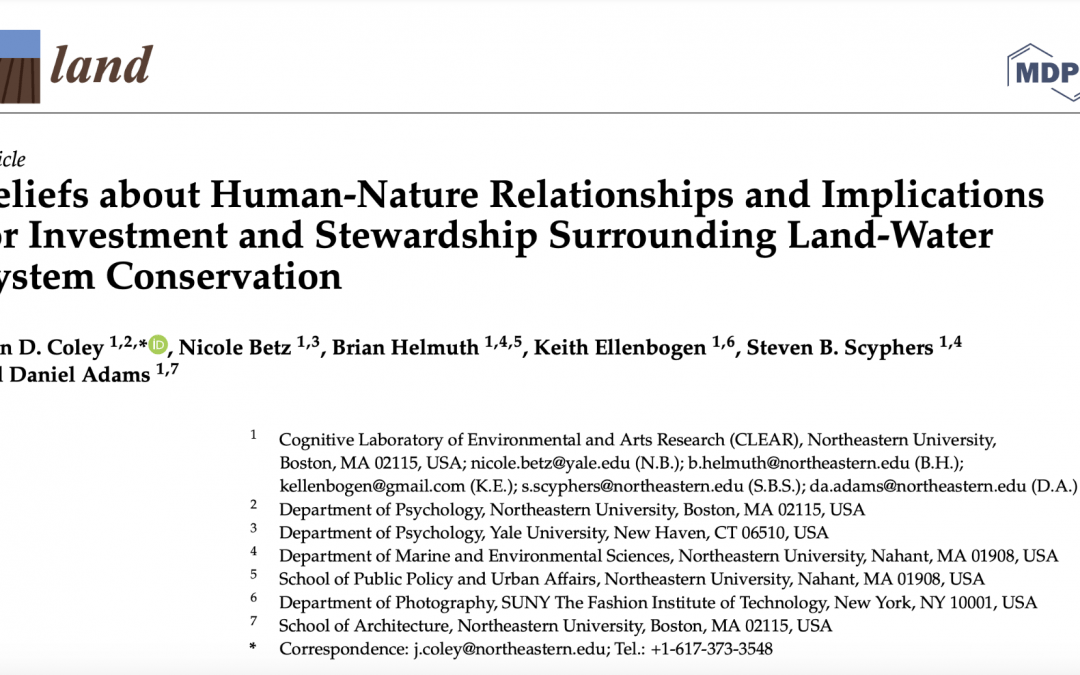New CORE Lab Publication: Beliefs about Human-Nature Relationships and Implications for Investment and Stewardship Surrounding Land-Water System Conservation
This past November, Dr. John Coley, the principal investigator of the CORE lab, along with Nicole Betz, Brian Helmuth, Keith Ellenbogen, Steven Scyphers, and Daniel Adams, published their study: Beliefs about Human-Nature Relationships and Implications for Investment and Stewardship Surrounding Land-Water System Conservation in the journal, Land. This exciting research in ecological cognition brings together researchers from diverse disciplines including cognitive psychology, marine and environmental science, architecture, and photography, and focused on answering the question: How do people view the relationship between humans and nature in the context of urban waterways, and how does this affect environmental investment and stewardship?
Participants in the study completed an online survey where they read about a hypothetical polluted river in an urban area. To test the effect of different framing methods, the impacts were either described as locally-benefitting or globally-benefitting. They were then asked questions about how likely they were to invest in the restoration of the river and how responsible humans were for restoring the river. They also indicated the extent the river impacted humans, the extent humans impacted the river, and the extent they believed people are connected to other living things.
The study found that participants tend to perceive humans as having a larger impact on the river than the river has on humans. In other words, people view humans as having a disproportionate effect on the environment rather than mutual influence, which is representative of human exceptionalist beliefs (the idea that humans are separate from nature and ecological interactions).
Additionally, the study found that lower levels of human exceptionalism corresponded with more willingness to invest in river restoration. Higher levels of ecological connectedness were associated with stewardship, or feelings of responsibility towards the environment. These findings suggest that attempts to reduce human exceptionalism and increase ecological connectedness may result in more environmental investment and stewardship.
In terms of framing, when the participants were given a description of the local, rather than global, benefits of the river, they had reduced levels of human exceptionalism, as it increased the degree participants believed the river impacted humans. Based on this, if ecological information is presented in a way that emphasizes local consequences, we may be able to reduce human exceptionalism and therefore increase environmental investment.
This research has important implications for how we can better increase environmental investment and stewardship in stakeholders as we attempt to develop solutions for both local and global environmental issues. Dr. Coley, doctoral student Joan Kim, and their team continue to work on deeper and more detailed explorations of the perceptions of human/environment interactions in different environmental contexts to better understand the imbalance between perceived human and nature impacts. Dr. Coley also aims to better understand how our models of the environment can predict behavior and how this relationship may be used to increase environmentally focused behavior.
